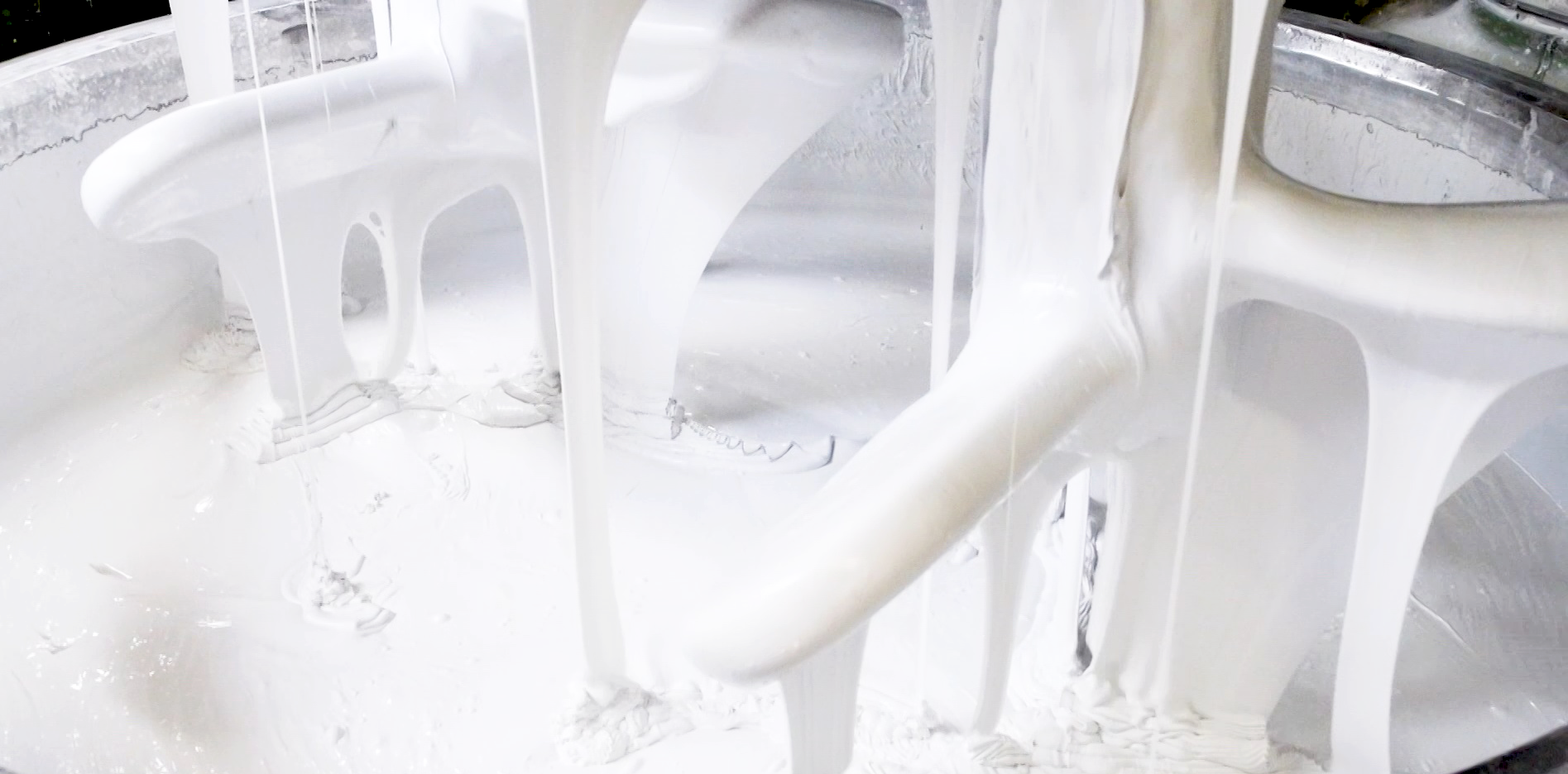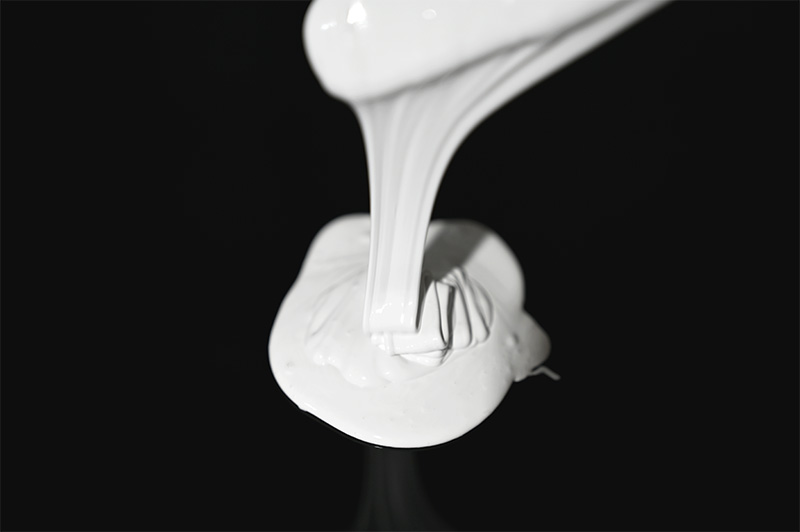
ISO-SIL® 150.000
• high heat conductivity
• low mechanical strength

Viscous ISO-SIL 150.000
ISO-SIL® 150.000 is an addition-curing 2-component silicone that cures at room temperature (accelerated curing by applying heat to the material is also possible).
The material is highly filled with a heat conductive mineral. This results in excellent thermal conductive crosslinked material.
ISO-SIL® 150.000 is an electrical insulator and can be used anywhere where electrical insulation combined with excellent thermal conductivity is required.
ISO-SIL® 150.000 has good adhesion to metals and plastics. The hydrolysis resistance is excellent.
The product is compliant according to EU Directives 2011/65/EU (“RoHS”) and 2015/863/EU (“RoHS III”).
Technical data
Component A
Colour
Viscosity (25°C; rot.; 1 s-1)
Density (23oC)
White
Approx. 150000 mPas
Approx. 2,70 g/cm³
Component B
Colour
Viscosity (25°C; rot.; 1 s-1)
Density (23oC)
White
Approx. 150000 mPas
Approx. 2,70 g/cm³
Mixture
Mixing ratio comp. A : comp. B
Colour
1 : 1 parts by weight
White (other colours on request)
Density (23oC)
Approx. 2,70 g/cm³
Pot life (23°C)
Gel time (23°C)
Approx. 60 min
Approx. 120 min
Mixed viscosity (25°C; rot.; 1 s-1)
Approx. 150000 mPas
Cured product
Mixing ratio comp. A : comp. B
Under standard curing conditions
1 : 1 parts by weight
(14 days 23°C / 50% rel. humidity) unless otherwise stated
Hardness Shore 00
(23°C; 14d RT 50% rel. h.)
Hardness Shore A
(23°C; 14d RT 50% rel. h.)
Approx. 75
Approx. 26
Dielectric strength (DIN EN 20243-1:2014-01)
Approx. 25 kV/mm
Surface resistance (DIN EN 62631-3-2)
Approx. 1,80×1012
Thermal conductivity (ASTM D5470-12)
> 2,60 W/K×m
Dielectric loss factor tan δ
25°C / 10/100/1000/10000/100000 Hz
Approx. 3,62 / 0,89 / 0,24 / 0,05/ 0,02
Dielectric constant εr
25°C/ 10/100/1000/10000/100000 Hz
Approx. 17,9 / 11,7 / 8,4 / 7,6 / 7,5
Tracking resistance (CTI)
> 600
UV resistance
Good
Storage and transport
Store in a dry, airtight container at 10-25°C. Can be stored for at least 6 months in original sealed containers under the above conditions. Short-term deviations in storage temperatures during transport and interim storage are acceptable. No special temperature control is required for air transport.
Cleaning
To ensure good adhesion of the cast resin the customer should individually test the suitability of the involved surfaces. Possible pre-treatments like cleaning, activation processes (plasma process) etc. should also be taken into account. The contact surfaces should be free of dirt such as dust, grease or water. For cleaning we recommend ISO-RC® Degreaser for wipe degreasing or ISO-RC® Flux-Off + ISO-RC® Spraywash for spray degreasing (available in 400 ml spray cans).
Processing
Weigh out both components in the specified mixing ratio and mix for approx. 2 minutes while stirring slowly. Ideally, the mixing process is carried out mechanically without any further introduction of air when mixing the components. ISO-SIL® 150.000 has slightly thixotropic properties and high viscosity. When applying small quantities, pressing the material or precise automated dosing may be necessary, as the self-leveling properties are limited. To make processing easier, the components can be heated slightly before mixing (recommendation max. 40°C). Storage containers containing the product should not be under vacuum.
ISO-SIL® 150.000 contains abrasive fillers. When using a mixing and dosing system, this point should be taken into account when designing the system.
The product is a cold-curing 2-component casting compound. Curing can be massively accelerated by heating the cast component (e.g. a few minutes at 80°C). Own tests to determine the optimal process parameters and application properties for the desired application should be carried out independently.
Attention: The crosslinking catalyst in the product can be destroyed by various compounds. These include, for example, amines, various heavy metals, sulfur compounds, isocyanates and others. Such substances must be kept away from the product components (even in small quantities). In the event of contamination, the curing of the material may be significantly slowed down or completely inhibited.
The EC safety data sheet provides information on safety-relevant product properties.
